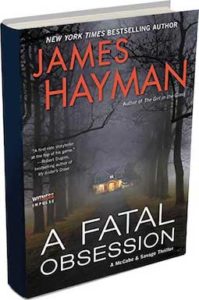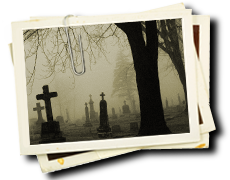It’s sort of like the old chicken and egg thing. People are constantly asking me, “When you decided to write a mystery/thriller series, what came first? The character or the plot?
The short answer is neither.
What really came first when I decided to write The Cutting, was the setting.
Well before I began to dream up McCabe or Maggie or any of the other continuing characters in The Cutting, I knew I wanted to write a series set in Portland, Maine.
I don’t think that’s particularly unusual. A sense of place is key to a lot of the best mystery writing. It would be hard to imagine James Lee Burke’s Dave Robicheaux novels set anywhere but in Louisiana. Or Tony Hillerman’s Joe Leaphorn/Jim Chee stories taking place anywhere but in New Mexico. The same holds true for Carl Hiaasen’s Florida, Dennis Lahane’s Boston, Julia Spencer-Fleming’s Millers Kill, New York, and, of course, Sir Arthur Conan Doyle’s London.
I don’t know for sure but I’d be willing to bet every one of those writers knew where they wanted to set their books before they knew very much about who their characters were and certainly before they developed a specific story line.
For me the perfect place turned out to be Portland. I moved there from New York in 2001 and discovered a city that offered just about everything a writer could want in creating a new mystery series.
It had a gritty urban setting. A vibrant street life. Great architecture. A rich history. A working waterfront. Good bars. Great restaurants. A lively art scene. And not unimportantly, a police department with big-city skills and resources that was still small enough for most of the cops to know and care about each other. Portland even offers interesting and often extreme weather to set scenes in.
My editor at St. Martin’s was very upfront about it. The Portland setting was one of the key reasons he offered to buy the series.
One of my most perceptive reviewers, Judy Harrison of The Bangor Daily News recognized the importance of place to The Cutting right off. She wrote:
“Sam Spade had San Francisco.
Spenser has Boston.
Mma Ramotswe has all of Botswana.
Now, McCabe has Portland — as in Maine.
Maybe it’s the other way around. Portland has McCabe.
It’s hard to tell sometimes whether a detective in a mystery novel owns the setting or it owns the detective. What really matters is that the location becomes such an integral part of the character that it is inseparable from the gumshoe, P.I. or self-educated investigator who always, eventually, solves the crime.”
To anyone thinking about writing a new mystery or thriller series, I’d suggest trying what worked so well for me in The Cutting. Pick a place. Then make it your own.


